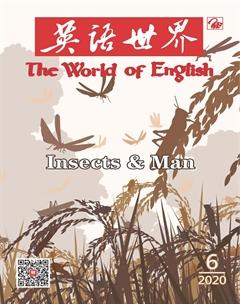Carmen—Tragic Heroine or Feminist Icon? 卡门
唐毅

Opera is renowned for its violent treatment of women characters; this more often than not leads to the protagonist presenting as a tragic heroine, the female lead who ‘suffers from a tragic flaw that eventually causes her downfall. Carmen is not merely a one-dimensional character and thus, in a very realistic way, has imperfections and makes mistakes. Out of all of these faults her stubbornness is the one that ultimately leads to her downfall. However, it is also this flaw that encourages her to be viewed as a feminist icon; her refusal to bend to the constraints of social expectation is what frees her and simultaneously tears her down.
The Oxford Dictionarys definition of feminism is, ‘The advocacy of womens rights on the ground of the equality of the sexes, Carmen is often criticised for her treatment of other women in the opera as being un-harmonious with feminist values. This is clearly demonstrated in the way she fights viciously with her co-worker, but what critics seem to forget is that she did not betray her colleague and tell the authorities what happened; taking the brunt of the responsibility upon herself.
Carmen is sexually, politically and socially independent; we see this through her supporting herself financially; possibly the only working class female character in opera to do so. In WNOs latest production we see her rebelling against the regime fighting for independence, a natural born leader. In one scene a flag stamped with liberté drops down behind her framing her perfectly as she raises her gun in the air. Lastly, socially liberated through her position within the gypsy community, she is able to freely take, ‘for a country the universe and for law your own will.
Carmens sexual freedom is what infuriated the original audience in 1875; her rejection of a man in turn for another is seen as unforgivable, although, through the lens of feminism today the double standards of male and female promiscuity are clearly evident. She does not mould to Josés wishes and this is why she has to die; murdered in a jealous rage as he sees only what is owed to him and what he believes he is entitled to.
But then the tragic heroine always dies, and this is what Carmen Director Jo Davies questions in her introduction, ‘whether Bizet1s ending would be the same, or any different were he writing it today? Fierce and brave until the last, even in her language, ‘I am not a woman to tremble before him. Carmen redeems herself in refusing to become the imploring, begging victim; defiantly un-afraid of death. There are no come back arias2 for Carmen—when she dies she dies as she lived her life; boldly, truthfully and without weeping.
You can argue whether Carmen is a feminist icon or a tragic heroine but ultimately she is both for in a patriarchal society which is often seen to punish the woman who wants to go her own way, unless the world changes; how can our heroines?
歌剧以粗暴处理女性角色著称, 这往往导致剧中女主以悲剧形象呈现,即女主“会因自身的悲剧性缺陷走向毁灭”。卡门这个人物形象并非单一扁平的,而是十分真实,她有缺点,也会犯错。在所有这些缺点中,一意孤行的倔强性格最终导致她毁灭。然而,也正是这个缺点使得观众将她视为女性主义偶像。因为她拒绝屈从社会对女性期待的束缚,这既解放了她,同时也毁灭了她。
牛津词典对女性主义的定义是,“在两性平等的基础上主张女性的权利”。卡门对待剧中其他女性的方式不符合女性主义者的价值观,她常因此而遭诟病。从她和工友恶斗中可以清楚看到这一点。可是批评者们似乎忘了,她并未背叛工友向当局告发,而是揽下了所有责任。
无论从两性关系、政治立场还是社会地位上看,卡门都是一个独立女性。这一点可从她经济独立看出,而且她很可能是歌剧中唯一一个经济独立的工人阶级女性。在威尔士国家歌剧院最新出品的歌剧中,我们看到她为独立反抗政权。她是天生的领袖。剧中有这么一幕,她高举手中的枪,身后一面印有“自由”字样的旗帜倒下,将她全部盖住,勾勒出她的身姿。最终,她通过确立自己在吉卜赛人中的地位而在社会中获得解放,可以随心所欲地“将宇宙当作国家,将个人意志当作法律”。
1875年该剧初演时,激怒观众的是卡门的性自由。观众不能原谅她见异思迁的行为,但从当今女性主义的视角看来,显然这是在滥交问题上对男女的双重标准。卡门不顺从何塞之意,这是她必死的原因;何塞眼中只有卡门对他的亏欠,认为自己有权得到卡门——他妒火中烧,杀死了卡门。
不过,悲剧性女主往往以死亡告终,而这也是《卡门》的导演乔·戴维斯在介绍此剧时所質疑的:“如果比才今天来写这部歌剧,结尾会是这样吗?还是会有什么不同?”从头到尾,卡门都表现得激烈勇敢,连她的话中都透着这股劲儿:“我不是在他面前发抖的那种女人。”卡门拒绝让自己成为哀求乞怜的受害者——这是她的自我救赎;她不怕死亡,无所畏惧。对卡门来说,没有返场曲——只要曾经勇敢、真诚地活出了自我,没有哀怨哭泣,死亡来临,又有何惧!
卡门是女性主义偶像还是悲剧性女主,也许还可以争论,但归根结底她两者都是——在一个常常对特立独行的女性进行惩罚的父权社会里,我们的女主又能怎样呢?除非这个世界变了。
(译者单位:东华大学)
1指乔治·比才(Georges Bizet,1838—1875),法国作曲家,歌剧《卡门》的作者。 2 aria咏叹调。

